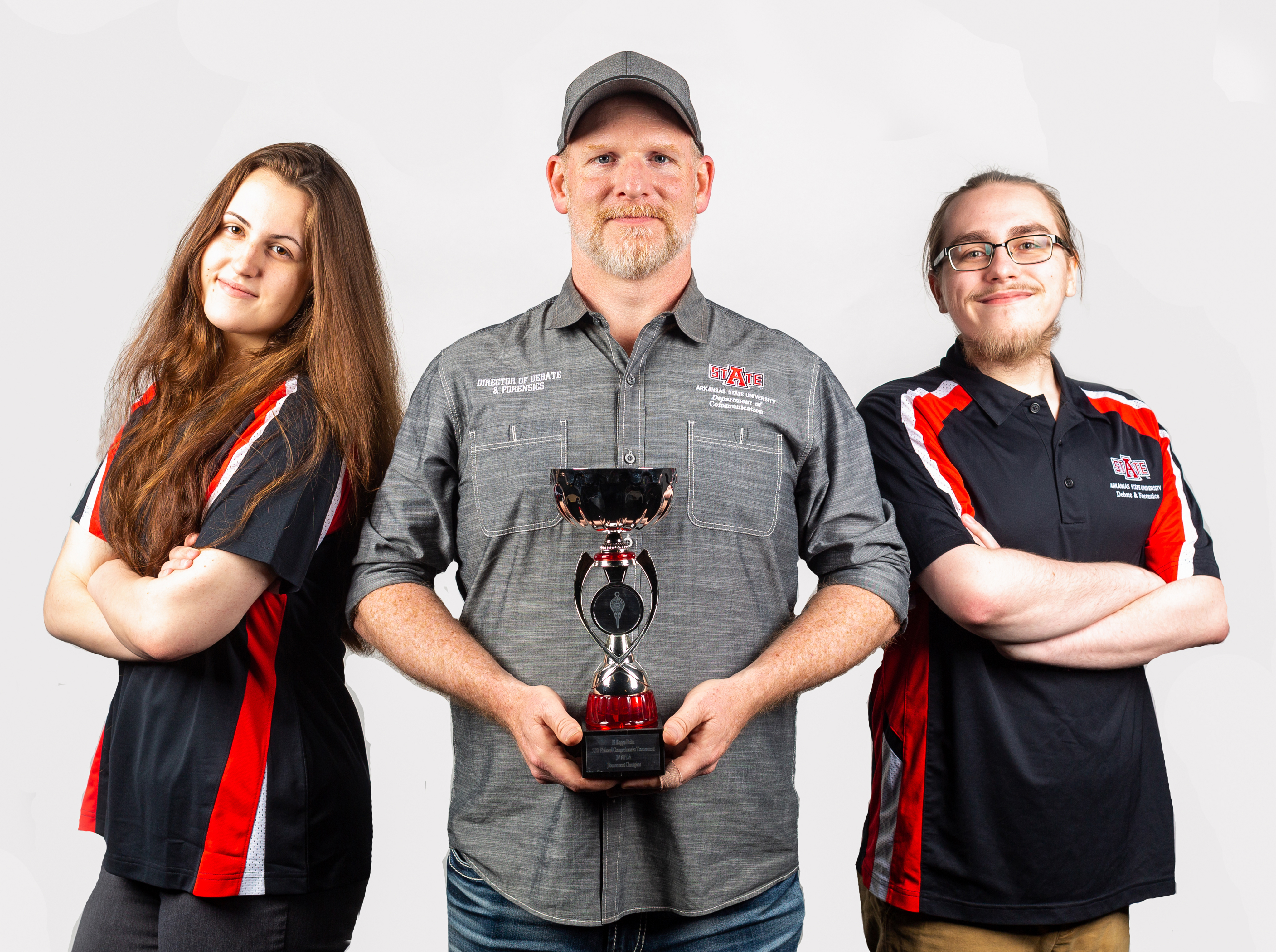Debate Team Captures Pi Kappa Delta JV Parliamentary National Championship
JONESBORO — Arkansas State University’s debate team stepped up to win the Pi Kappa Delta Junior Varsity Parliamentary National Championship at the largest national tournament of the season. The victory gives the program its third national title in its existence. A-State won the Cross Examination Debate Association national tournament in 1998 and the International Public Debate Association award in 2013.

(From left) Somer Shannon of Cabot; Michael Gray, instructor of communication and director of debate and forensics; and Alex Mills of Cabot.
“I can’t say enough about this particular group of students,” said Michael Gray, instructor of communication and director of debate and forensics. “Winning the JV finals break-out round at a prestigious national tournament definitely feels great. What makes me really proud is the perseverance and dedication of our team members, especially during the pandemic.
“Debate is meant to be done in person, just like football, moot court, volleyball, or any other competitive activity. Like those other activities, our norms and expectations were upended and for the first time in our team’s nearly 100-year competition history we didn’t travel to a single tournament. The importance of travel for team cohesion and debate education cannot be overstated.”
Alex Mills and Somer Shannon, both of Cabot, won the junior varsity championship break-out round, defeating second-ranked North Dakota State in a 3-0 decision. Teammate Christian Huggins, also from Cabot, triumphed among the top 10 varsity speakers and team captain Harrison Cook of Louise, Texas, won the varsity excellence award for finishing with a top 30 percent record.
Gray said that competitors were divided into 43 teams of two in the varsity team parliamentary debate division. Instead of having three levels within the division (novice, junior varsity and varsity), it is a common practice for certain debate formats for all contenders to be placed into one pool, meaning students with one-year experience debated against students with four years of experience.
In parliamentary debate, participants are randomly paired with their opponents and told whether they will be defending or opposing a topic. After the pairing, the students are given their topic and 20 minutes to prepare arguments. Each round lasts for approximately one hour. Every pair is presented with a new topic each round that may range from international policy to U.S. pop culture to other subjects. Team participants do not know their topic ahead of time.
Mills and Shannon had the final round topic, “Cancel culture has done more harm than good” and were assigned the affirmative side. The pair defended the statement as true and won.
“Some students choose to attend A-State because of our debate program and the opportunities we can provide,” continued Gray. “When the world shut down and our entire season went digital, they didn’t stop being Red Wolves. They showed up in August and gave 100 percent all the way through. They accepted the situation for what it was and put their efforts into adapting to and excelling in a completely foreign competitive environment.”





